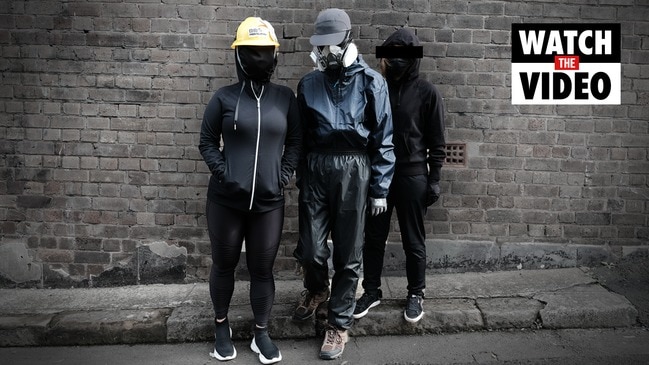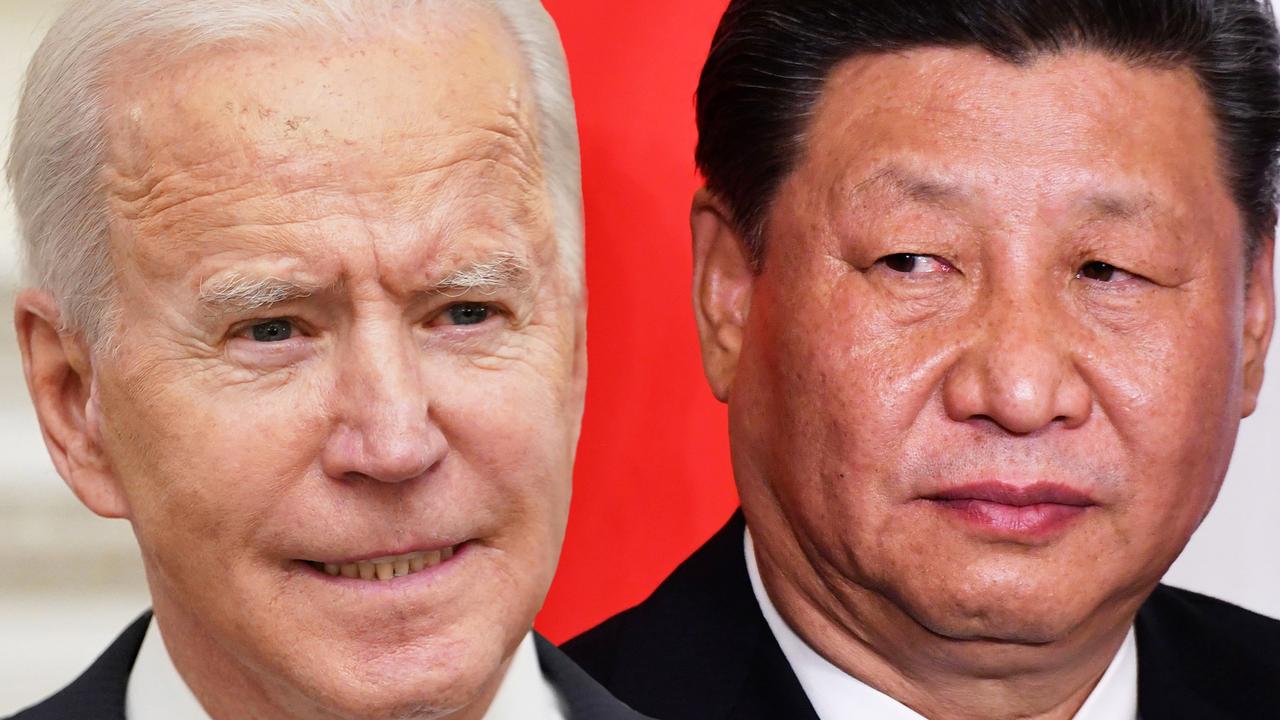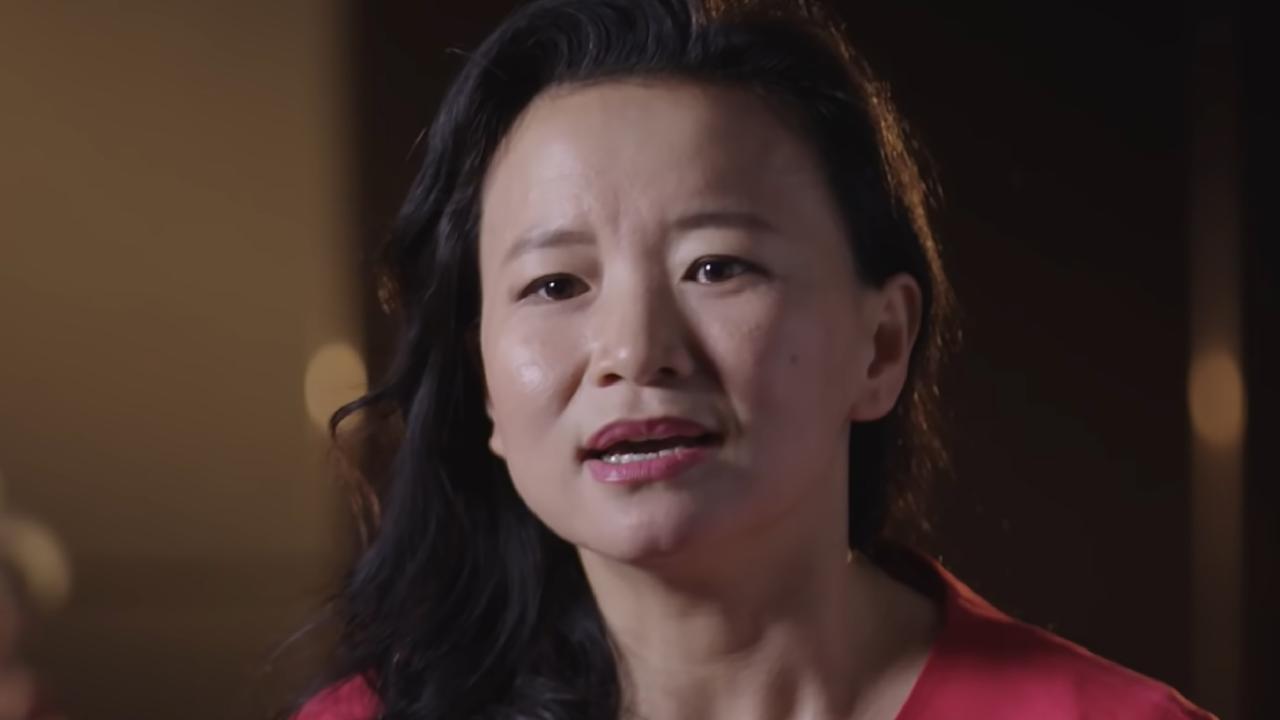How China is winning race to become world’s leading superpower
Experts have warned China is waging a daily assault on Australia and it’s part of a “destiny” to become all-powerful and topple democracy.

China is winning. Democracies are falling. Authoritarian ‘strong men’ are on the rise.
“The theory of democracy as presented by Abraham Lincoln is on life support in the intensive care unit. People’s autocracy, as a governing model, will continue to emerge in many other nations in the days to come,” crows Beijing’s state-controlled media.
Ethiopia, Haiti, Hong Kong, Malaysia, Myanmar, Russia, the United States. All are facing dramatic challenges to their democracies.
But they’re just the tip of a teetering iceberg.
International democracy think-tank Freedom House warns that internal – and foreign – forces are actively destabilising some 79 governments worldwide.
Assassinations. Deportations. Abductions. Surveillance. Intimidation.
Amid the chaos, one figure stands tall.
“He’s very bright. He’s very tough.” Such is US President Joe Biden’s assessment of Chairman Xi Jinping. “He doesn’t have – and I don’t mean this as a criticism, just the reality – he doesn’t have a democratic ‘small d’ bone in his body.”
RELATED: China on the brink of ‘major crisis’

And it’s Xi’s self-declared “destiny” for China to take over the reins as the world’s leading superpower by 2049.
CLEAR AND PRESENT DANGER
We are in an era of “authoritarian resurgence” and “global democratic downturn”, warns the US-based National Endowment for Democracy (NED).
It’s a battle for hearts and minds.
“The leading authoritarians are challenging democracy at the level of ideas, principles, and standards, but only one side seems to be seriously competing in the contest,” its Democratic Responses to Expanding Authoritarian Influence report reads.
And they’re playing dirty.
RELATED: Worrying China move ‘threatens war’
Like the Russian government, the Chinese government uses 5 tools to interfere in democracies: information manipulation, cyber operations, malign finance, civil society subversion, and economic coercion.https://t.co/haQ5bKr1hf
— Alliance for Securing Democracy (@SecureDemocracy) February 9, 2021
“At home, Beijing, Moscow and others have used 21st century tools and tactics to reinvigorate censorship and manipulate the media and other independent institutions,” the report warns. “Beyond their borders, they utilise educational and cultural initiatives, media outlets, think tanks, private sector initiatives and other channels of engagement to influence the public sphere for their own purposes.”
Beijing has “carefully studied” how past authoritarian regimes failed, says former foreign secretary of India Vijay Gokhale.
It’s determined not to repeat those mistakes.
“Discrediting democracy as a political system appears to be the option of choice for the Chinese Communist Party,” he warns. “It appears to be moving from a defensive strategy of preventing the subversion of the communist state in China through so-called peaceful evolution by democratic means to an offensive strategy of undermining democracy abroad. It is a turning of the tables.”
CLASH OF IDEOLOGIES
This isn’t the Cold War-era contest between democracy and communism.
This time it’s all about autocracy.
“The Chinese are keenly aware of the fragility of their own political system,” Mr Gokhale states.
“There is no ideology left beyond the idea of prolonging the Communist Party’s absolute dictatorship over China.”
Chairman Xi loudly proclaims a message of “socialism with Chinese characteristics”, a philosophy that had “allowed China to stand tall and stride far”.
But that ideology poses problems for the aspiring world superpower.
“The Chinese Communist Party’s problem is that its model of ‘socialism with Chinese characteristics’ is, by its very definition, exclusive to China,” Mr Gokhale argues. “Its adoption as a global standard becomes difficult since it is virtually impossible to replicate Chinese conditions in other societies.”
Which is why Beijing seems so determined to export its conditions globally.
It’s sharing its all-seeing surveillance systems broadly. It’s attaching conditions to loans and infrastructure projects. It’s manipulating its overseas populations.
And that has caught the attention of international think-tank Freedom House.
INTIMIDATION WITHOUT BORDERS
“It is a daily assault on civilians everywhere – including in democracies like the United States, United Kingdom, Canada, Germany, and Australia,” the Out of Sight, Not Out of Reach report warns.
“It is (authoritarians) reaching across borders to silence dissent among diasporas and exiles,” the Freedom House report warns.
RELATED: Aus joins US in ‘worst case’ war game

“Critical voices that challenge authoritarian rule become voices to silence. Journalists and human rights defenders. Diaspora groups and family members of exiles. Political activists, dissidents and civil society leaders,” says the report.
“What appear to be isolated incidents when viewed separately – an assassination here, a kidnapping there – in fact form a constant threat across the world that is affecting the lives of millions of people.”
But Mr Gokhale warns Beijing’s efforts go much further than intimidating expatriates into becoming its foreign policy tools.
“Less obvious are the activities of the International Liaison Department of the Communist Party, virtually a parallel foreign office,” he says. This systematically cultivates foreign personalities and their families in traditional ways, he says, “but also plants its people as diplomats inside Chinese embassies so they can influence politics and policies under legal cover”.
FREEDOM WEAPONISED
Propaganda. Lies. Censorship. Influence. These are the instruments in the attitude-engineering toolkit. And the democratic principle of freedom of speech is their driving force.
“The Chinese Communist Party appears to be influencing the politics of democracies in many different ways,” Mr Gokhale writes. “The more obvious ones include the manipulation of the principles of freedom of speech and assembly while denying the same tools to others.”
It’s about redirecting democratic narratives.
It’s about injecting “Chinese characteristics” into internal national debates.
Beijing is leveraging propaganda, disinformation, and censorship to shape global media content. How can nongovernmental actors respond to this challenge? Read our new report by @Sarah_G_Cook @freedomhouse for insights: https://t.co/IiPEZJZMVZ pic.twitter.com/a0uYAKYX8U
— Forum @ NED (@ThinkDemocracy) February 8, 2021
“Over the past decade, the Chinese Communist Party (CCP) has overseen a dramatic expansion of efforts to shape media content around the world,” writes Freedom House research director Sarah Cook.
No country is immune, she warns.
“These efforts go beyond simply ‘telling China’s story’. Their sharper edge often undermines democratic norms, erodes national sovereignty, weakens the financial sustainability of independent media and violates local laws.”
DEFENDING DEMOCRACY
“For decades, China has advanced both economically and technologically under a ‘people’s autocracy’,” boasts a letter published by the now Beijing-controlled South China Morning Post. “This formula has proved extremely viable for many developing nations … The aftermath of the Arab Spring and the emergence of strongman leaders like Xi Jinping, Vladimir Putin and Recep Tayyip Erdogan bear testimony to the failure of the collective global democratic leadership.”
It’s a powerful message.
If one overlooks the extent to which Xi, Putin and Ergodan are willing to go to secure their grip on power.
“Many forms of government have been tried, and will be tried in this world of sin and woe,” noted Winston Churchill. “No one pretends that democracy is perfect or all-wise. Indeed it has been said that democracy is the worst form of government except for all those other forms that have been tried from time to time.”
Every election is a peaceful revolution. That’s the thing about democracy.
Change is part of the system. And if a political experiment fails, the public can undo the mistake at the next regularly scheduled poll.
But democracy’s power depends on its population. People need transparency, freedom of information and consequences for corruption to have faith in the process.
And that’s where the world’s democracies have been failing, Freedom House warns. Governments must accept this and act fast to update legislation, regulation and policing to strengthen these core values, it states.
“Democracies possess a critical advantage that authoritarian systems do not – the creativity and solidarity of vibrant civil societies that can help safeguard institutions and reinforce democratic values,” the NED adds.
But Mr Gokhale warns the authoritarian peril is acute.
“While democracies dither, China is silently undermining the roots of democracy throughout the world like a river systematically erodes the bank – until even the mightiest tree must fall.”
Jamie Seidel is a freelance writer | @JamieSeidel




